Getting braces is a big step toward a healthier, straighter smile; however, they can come with some temporary challenges. One common complaint from orthodontic patients—especially during the early stages of treatment or after adjustments—is headaches.
Let’s take a closer look at why braces can sometimes cause headaches, what’s considered normal, and when you should speak to your orthodontist.
Why Braces Can Cause Headaches
Braces work by applying gentle, continuous pressure to move teeth into better alignment. While this process is safe and effective, it can cause temporary stress and inflammation in the surrounding structures—including your jaw and facial muscles. That tension may trigger a headache.
Here are some common reasons headaches occur:
1. Tightening and Adjustments
After an adjustment appointment, your teeth and jaws are adapting to new pressure. This can lead to discomfort in the jaw, neck, or head—especially in the first few days.
2. Jaw Misalignment or Bite Changes
As your bite shifts during treatment, it may temporarily affect how your upper and lower teeth come together. This change in alignment can strain the jaw muscles, leading to tension headaches.
3. Clenching or Grinding
Some patients unknowingly clench or grind their teeth more when they first get braces. This added pressure can cause headaches, especially in the temples or around the ears.
4. Oral Appliances
Expanders, elastics, or other appliances can also alter jaw posture or muscle engagement, which may contribute to soreness or mild head pain.
What’s Considered Normal?
It’s common to feel mild to moderate headaches for a day or two after getting braces or following an adjustment. You may also experience:
- Soreness in the cheeks or jaw
- Tightness around the temples
- A dull ache, similar to a tension headache
These symptoms typically resolve on their own within 48–72 hours.
How to Relieve Braces-Related Headaches
Try the following at-home remedies to ease discomfort:
- Over-the-counter pain relief, such as Ibuprofen or acetaminophen (with approval from your doctor or orthodontist)
- Apply a cold compress to the jaw or temples to reduce inflammation
- Eat soft foods and avoid hard or chewy foods that add strain to your jaw
- Drink plenty of water since dehydration can worsen headaches
- Get plenty of rest because adequate sleep can go a long way in helping your body adjust to the changes
When to Contact Your Orthodontist
Although occasional headaches are expected, you should get in touch with your orthodontist if:
- Headaches are severe or persistent
- You have ongoing jaw pain or clicking
- Your bite feels significantly “off” for more than a few days
- You are experiencing other symptoms like dizziness or nausea that accompany your headache
In some cases, your orthodontist can adjust your treatment plan to help reduce strain on specific areas and alleviate discomfort.
Stay on Track Toward Your Best Smile—Even Through Discomfort
Headaches during orthodontic treatment are usually temporary and manageable—the key is knowing what to expect and when to ask for help. At Tebo Orthodontics, our team is here to support you every step of the way, making your smile journey as comfortable and successful as possible.
Still have questions about braces or headaches?
Contact our office today to schedule an appointment.



